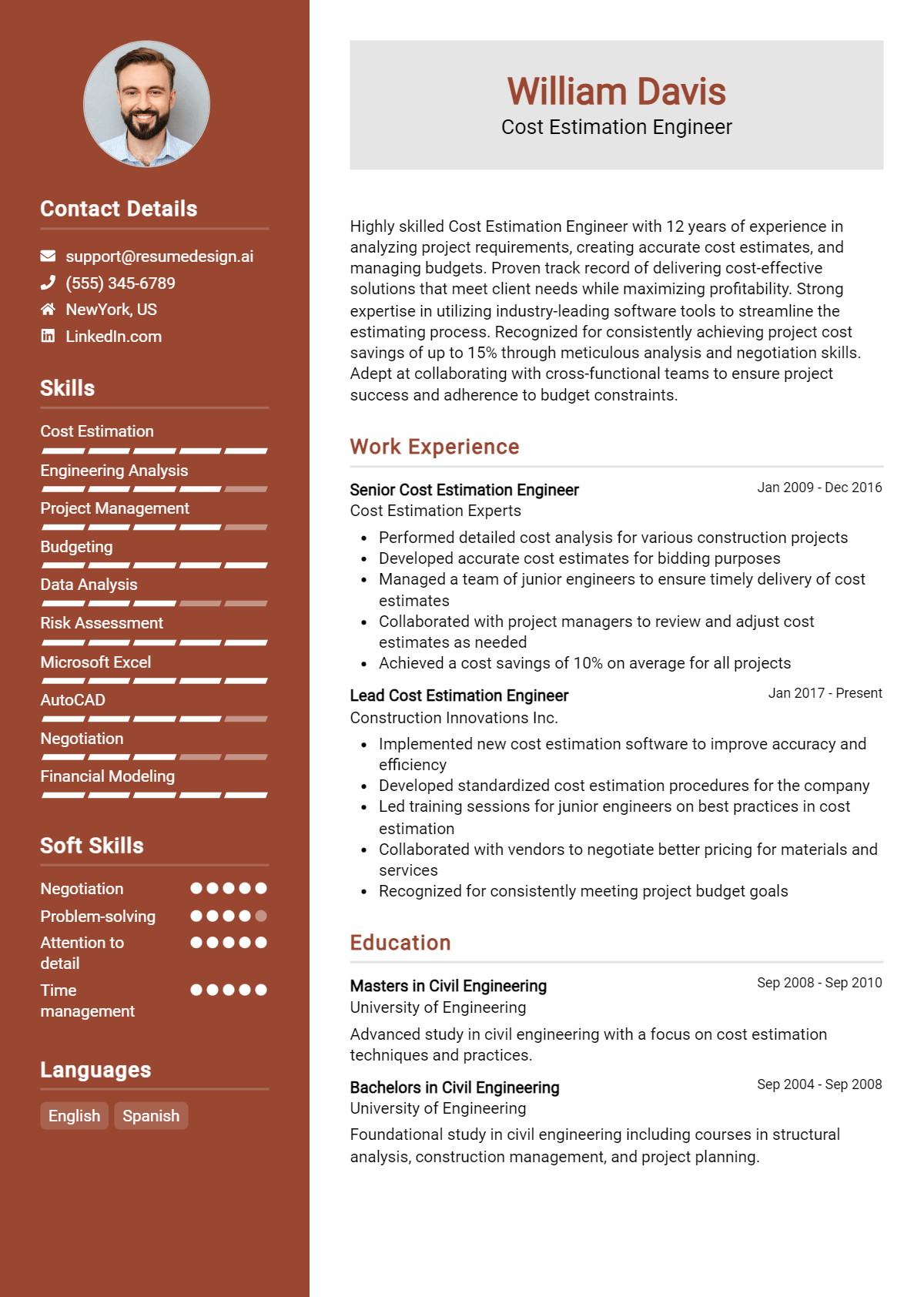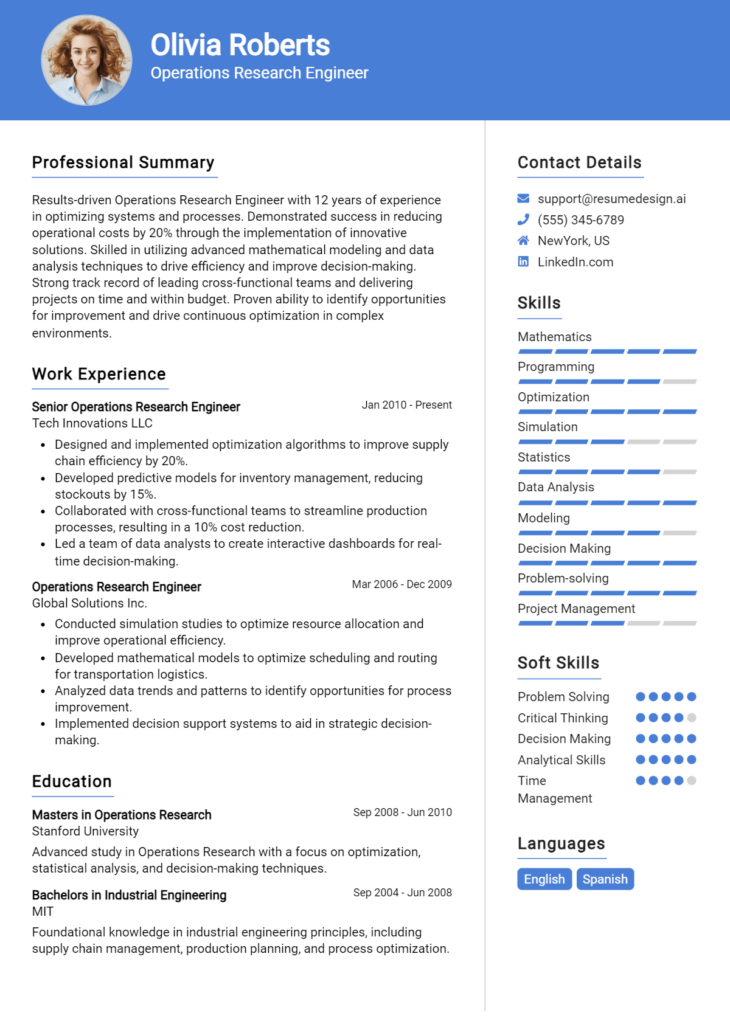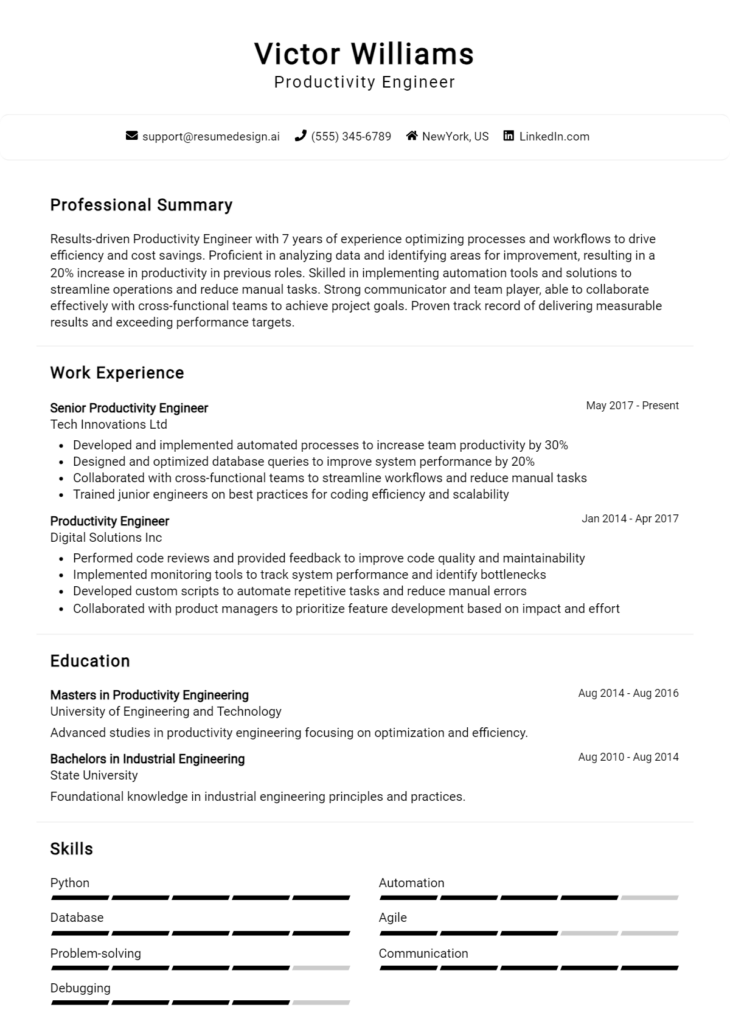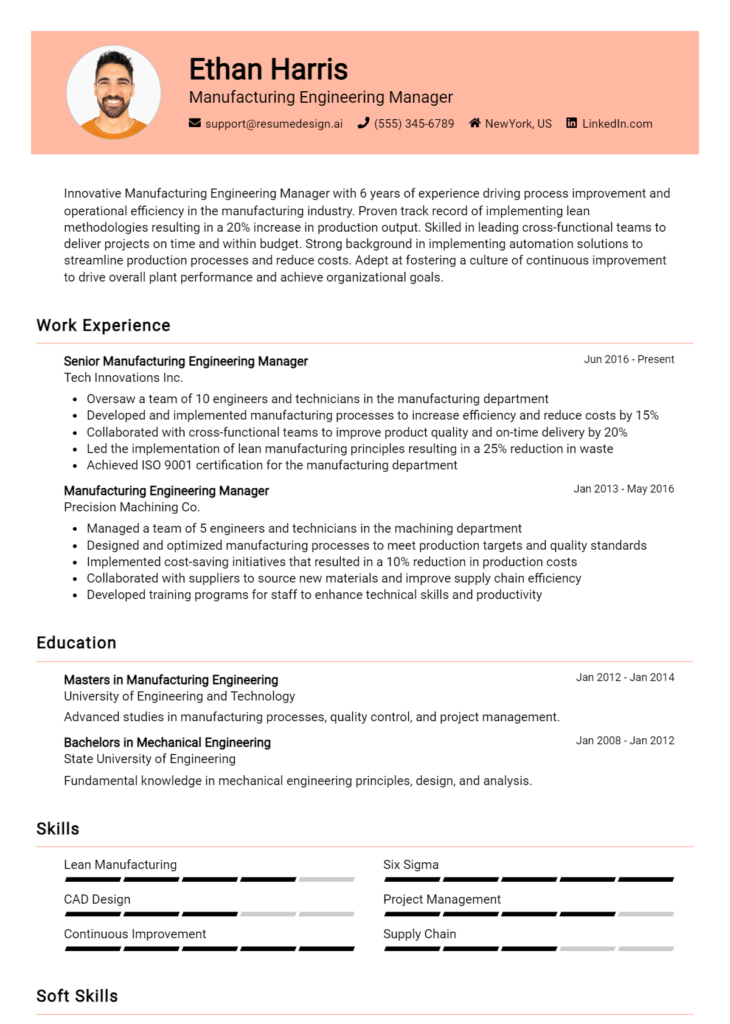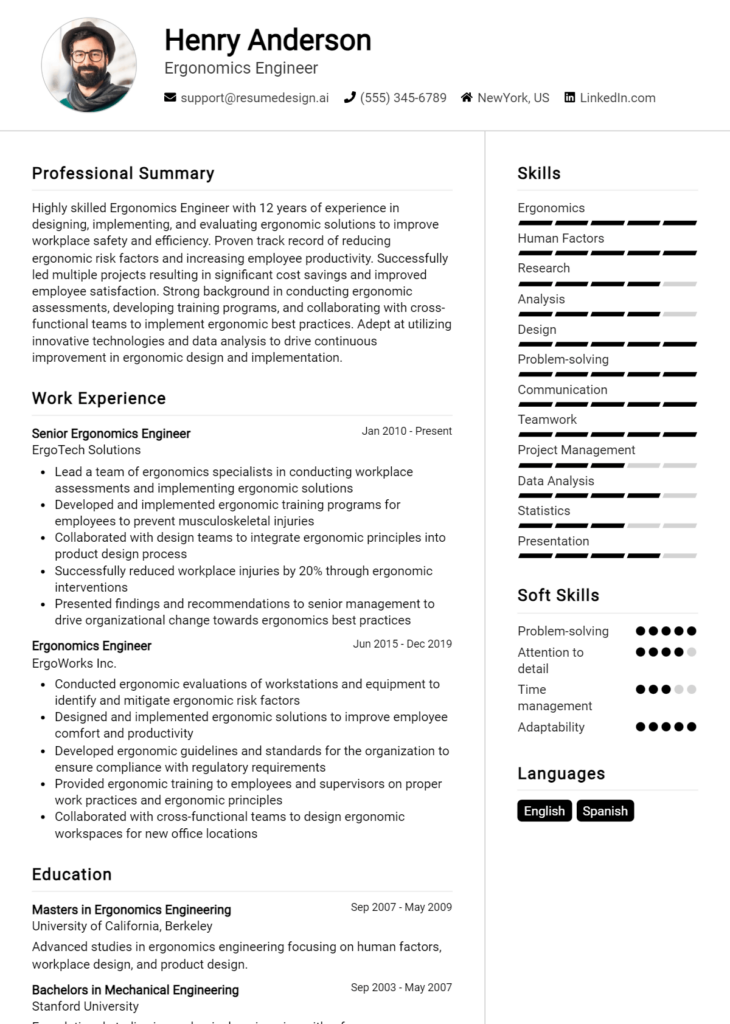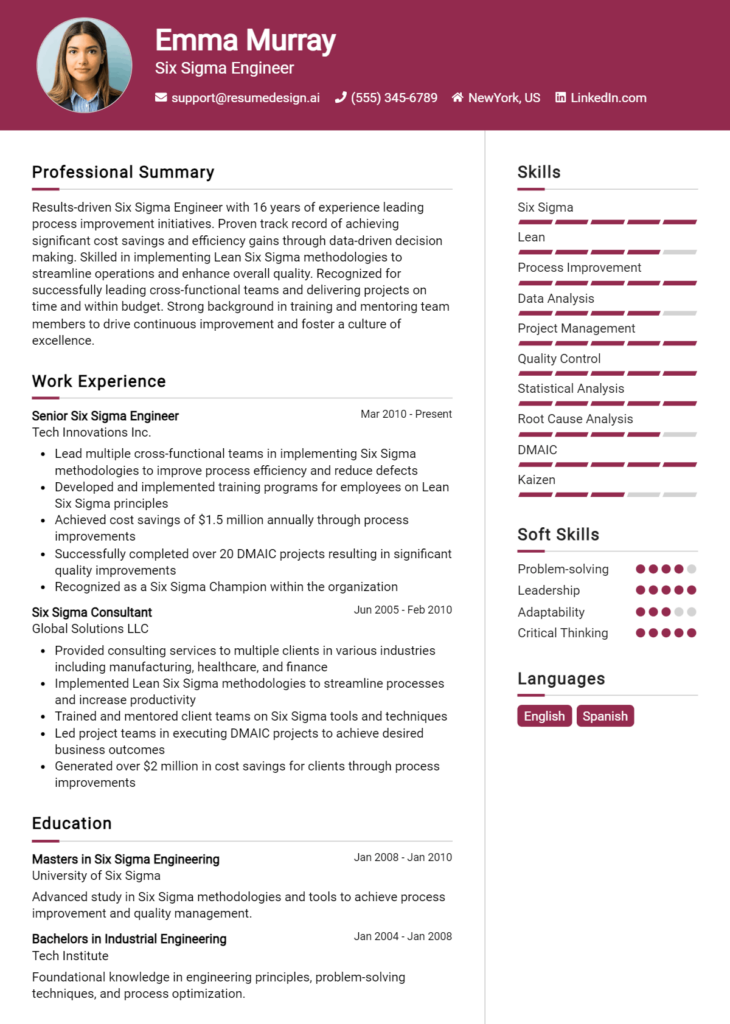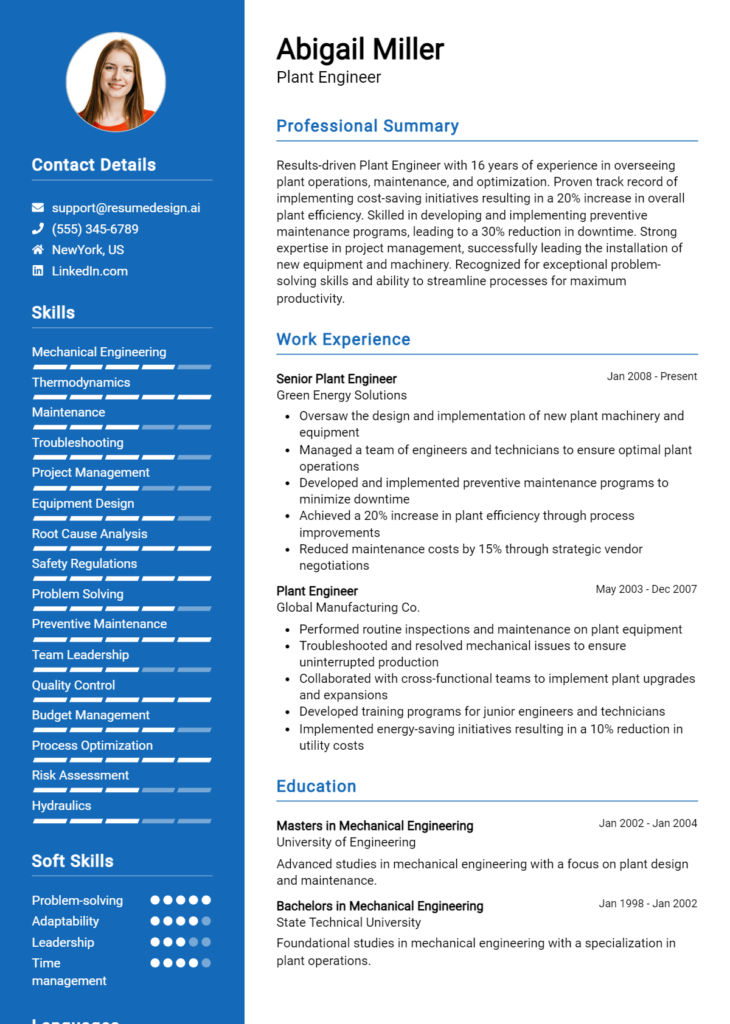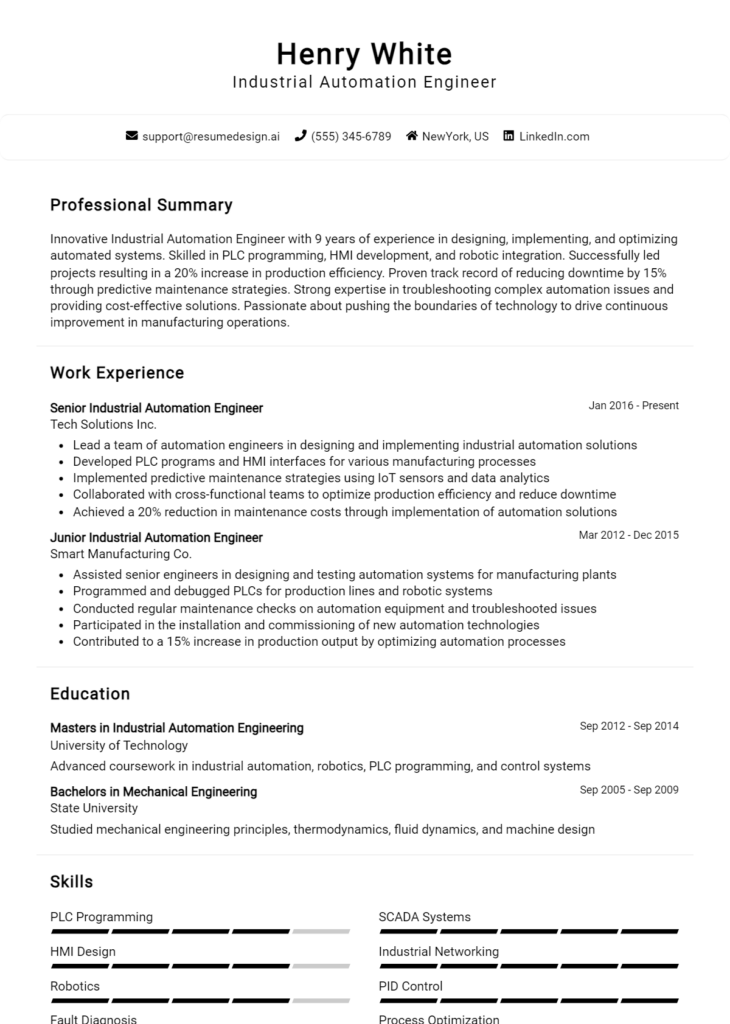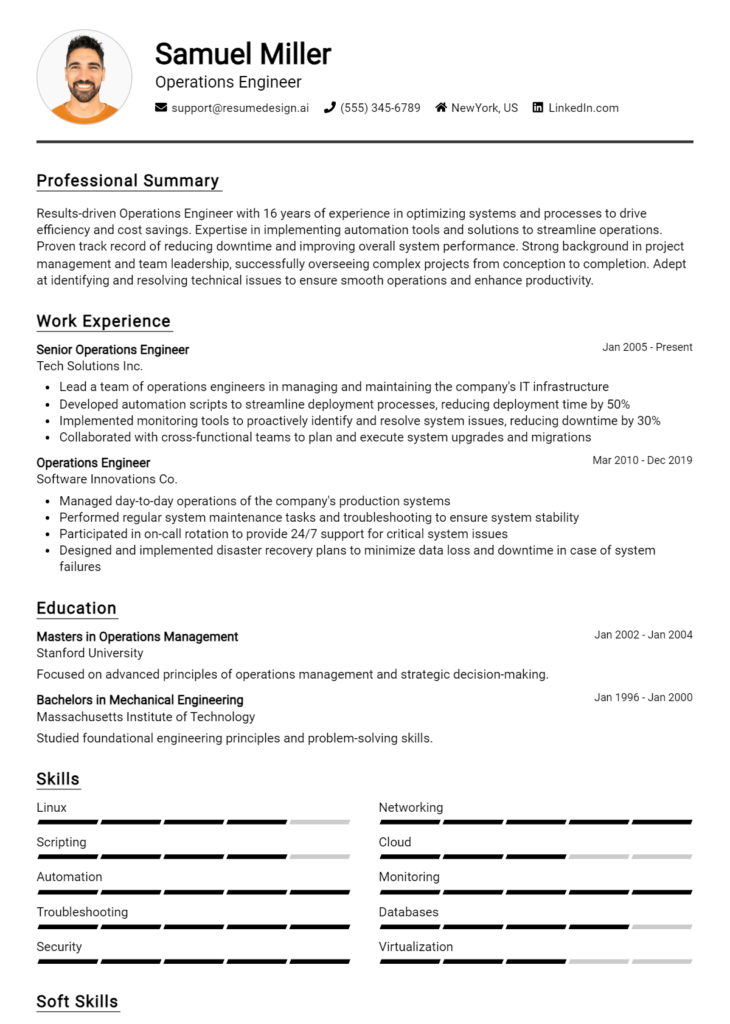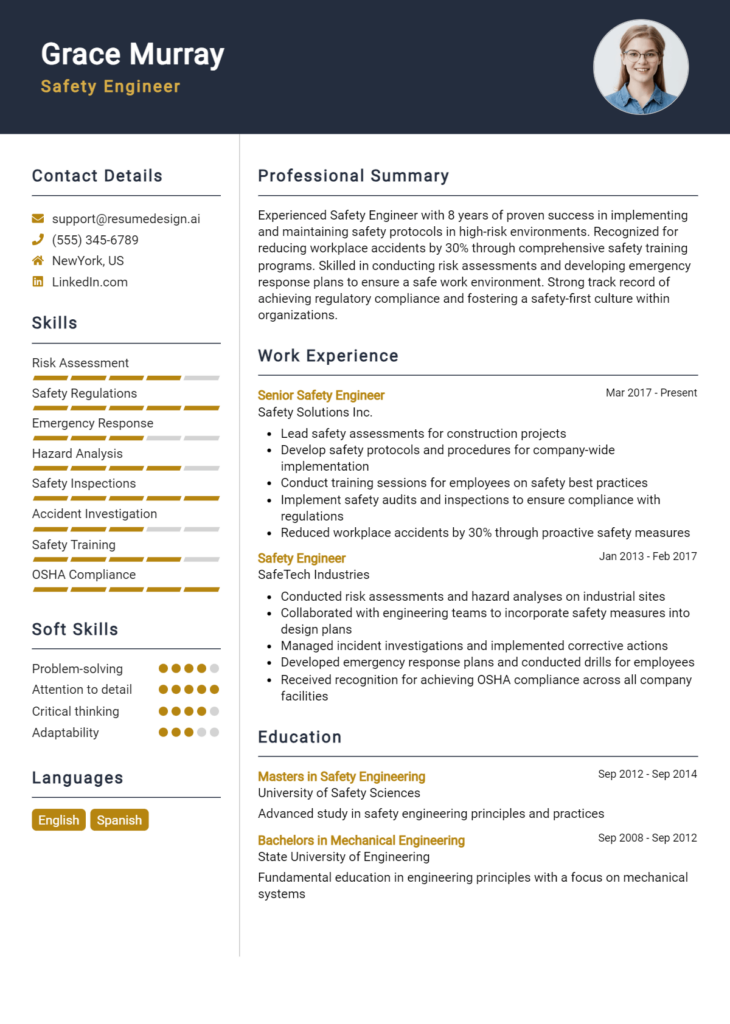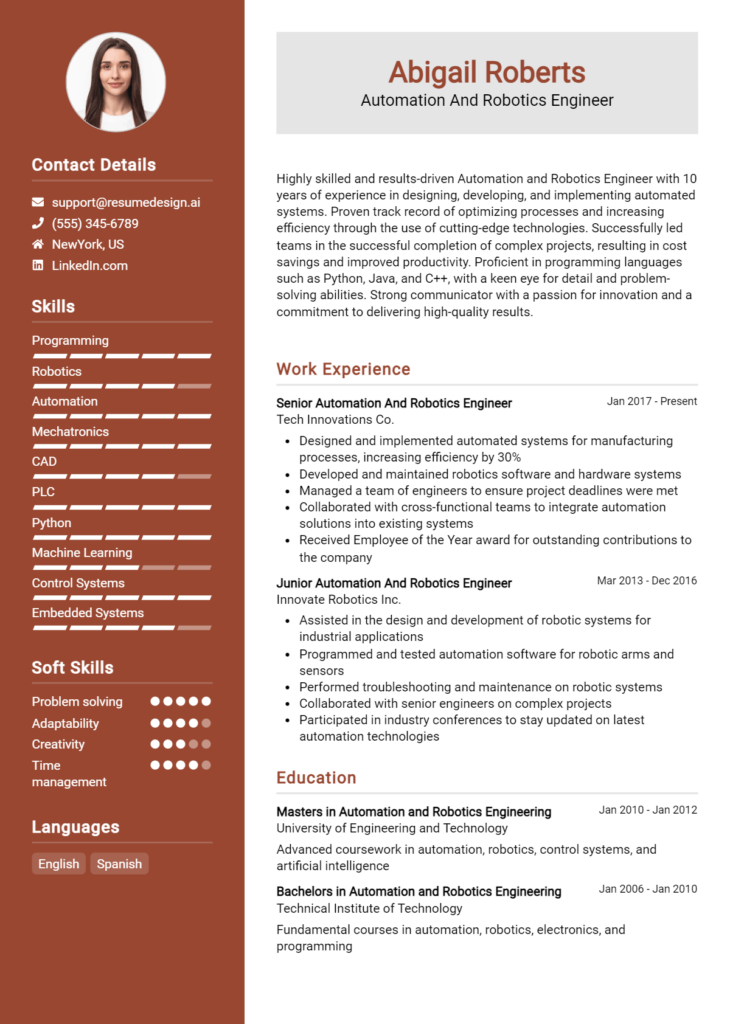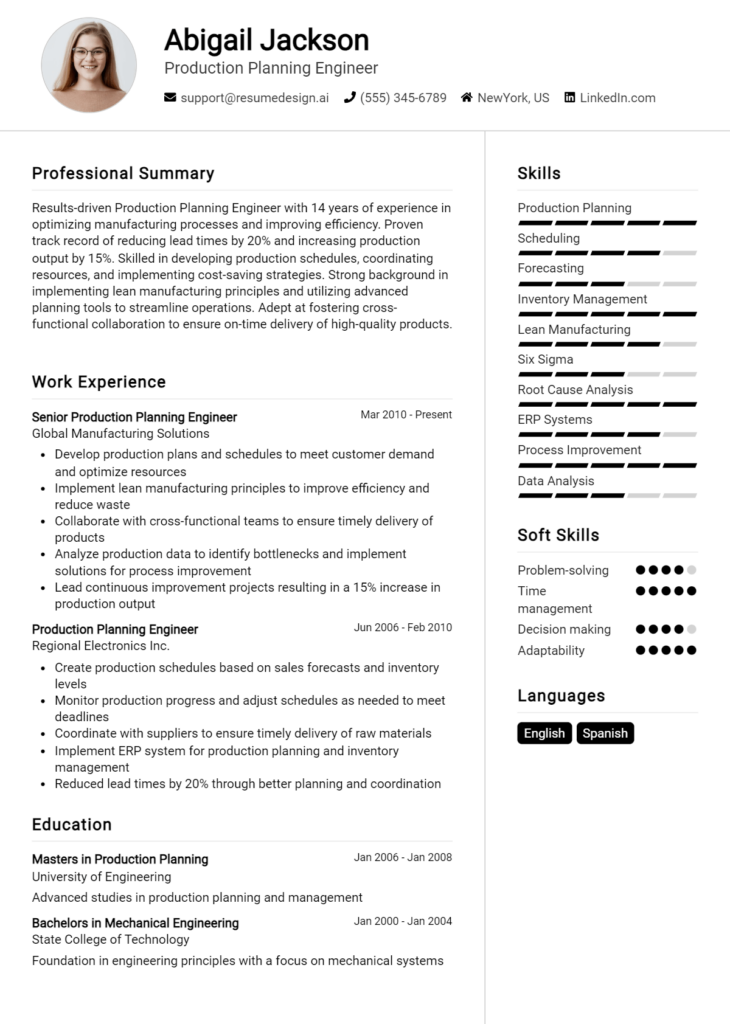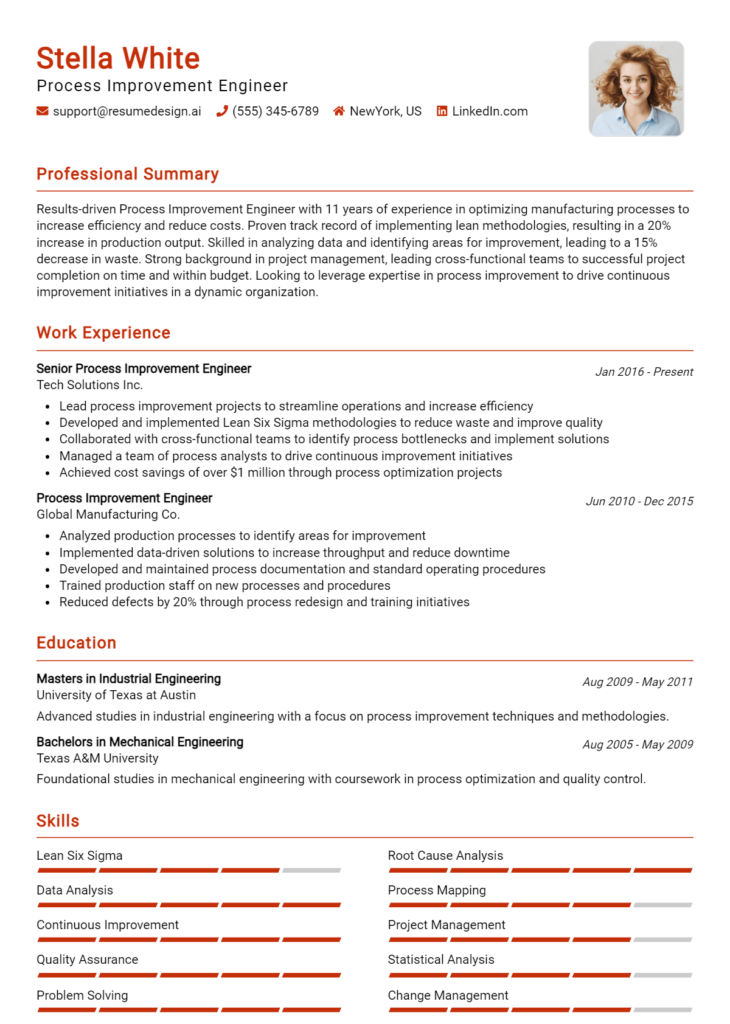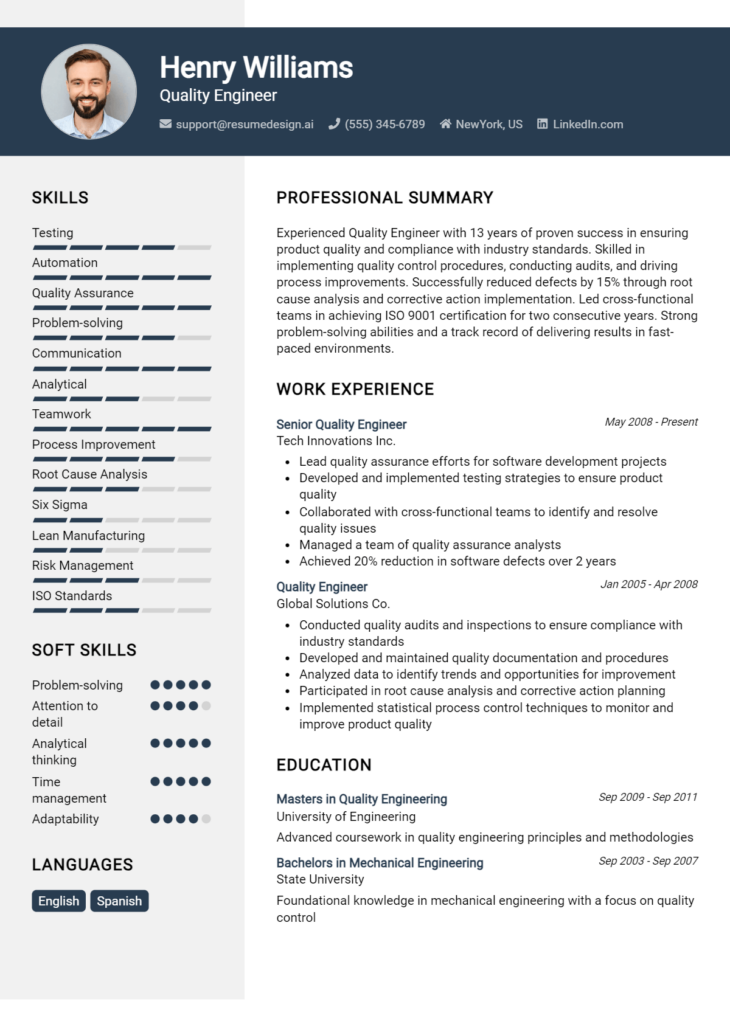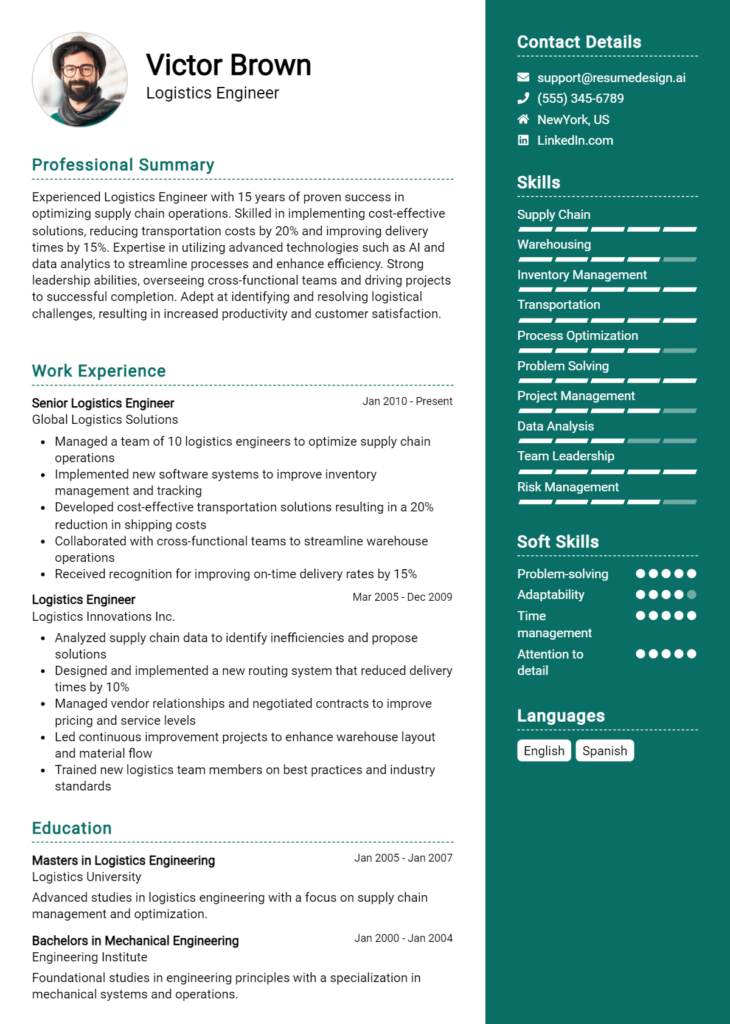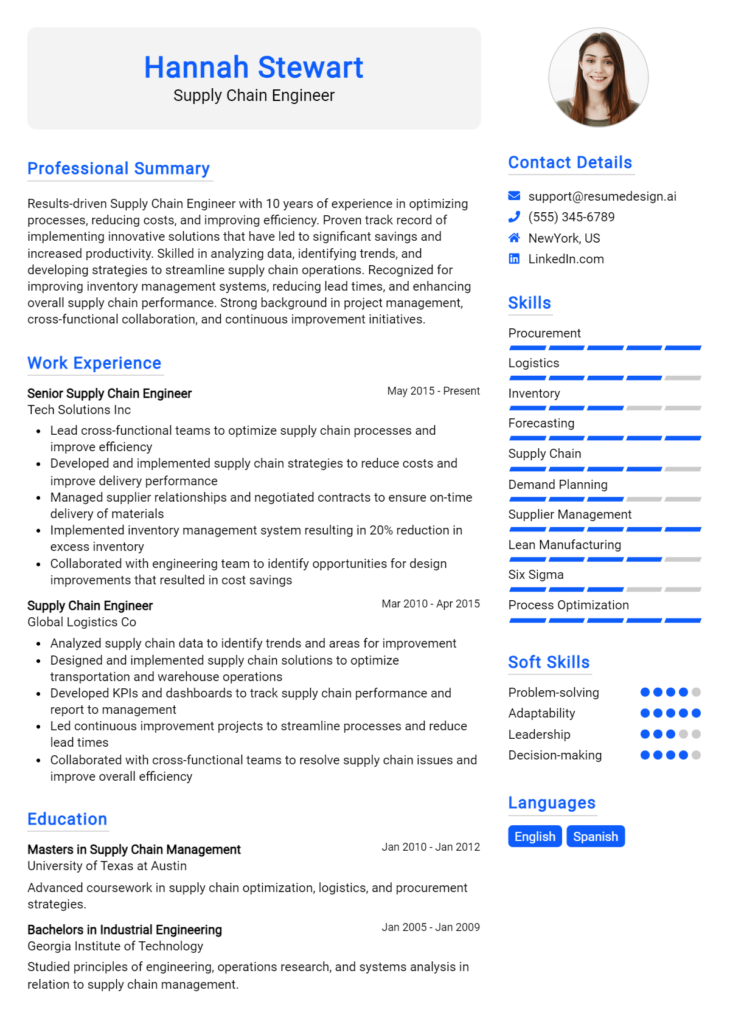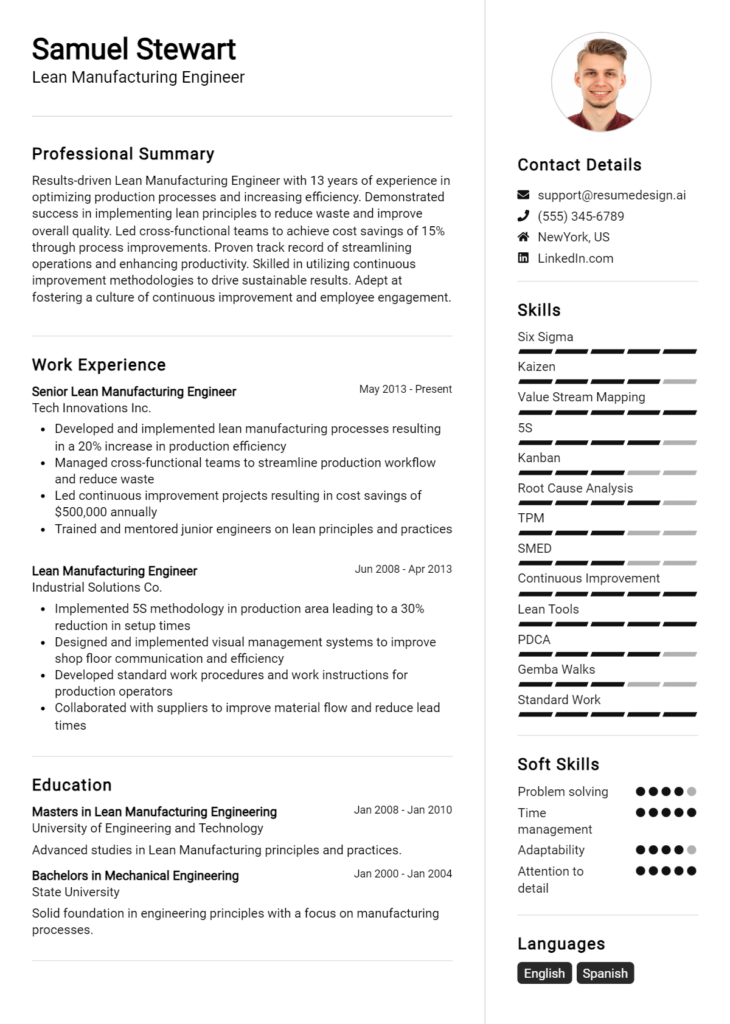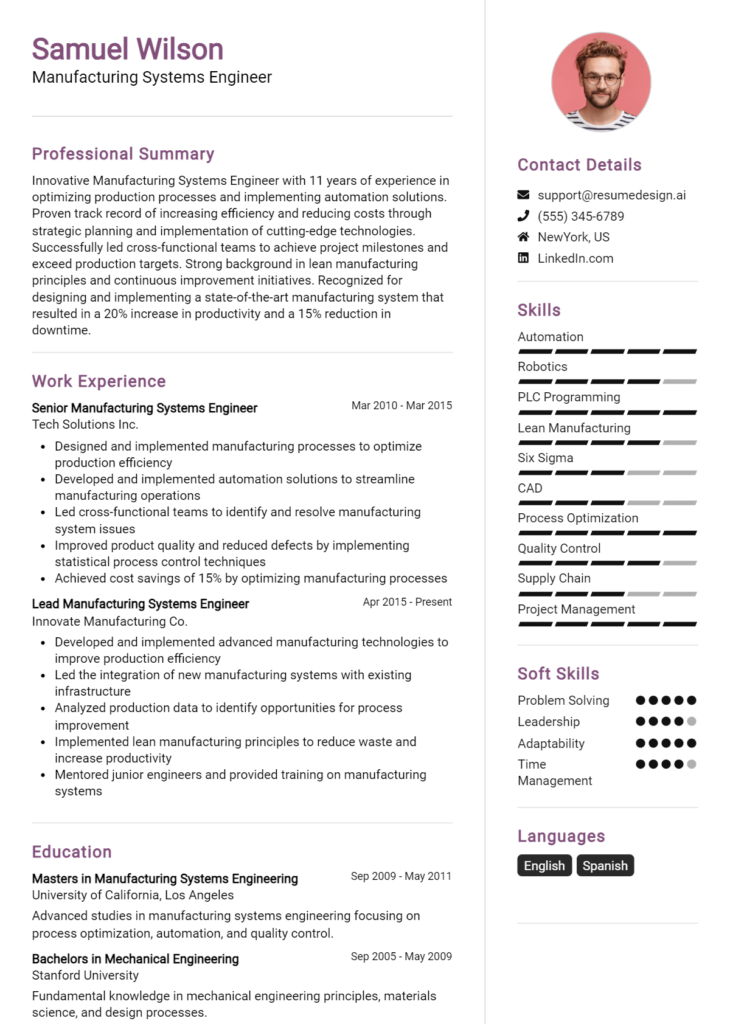Cost Estimation Engineer Core Responsibilities
A Cost Estimation Engineer plays a crucial role in bridging various departments, including engineering, procurement, and finance, by providing accurate cost assessments for projects. Key responsibilities include analyzing project specifications, collaborating with teams to gather data, and utilizing advanced software tools to create detailed estimates. Essential skills include strong analytical abilities, technical knowledge, and problem-solving competencies, which contribute to the organization's financial success. A well-structured resume highlighting these qualifications can effectively demonstrate a candidate's value.
Common Responsibilities Listed on Cost Estimation Engineer Resume
- Conducting feasibility studies and risk analyses for projects
- Gathering and analyzing cost data from various sources
- Preparing detailed cost estimates and budgets based on specifications
- Collaborating with project managers and engineers to refine estimates
- Monitoring project costs and providing updates to stakeholders
- Utilizing specialized software for cost estimation and analysis
- Reviewing and validating contractor bids and proposals
- Identifying cost-saving opportunities and recommending improvements
- Maintaining accurate documentation of estimates and changes
- Assisting in the preparation of project funding requests
- Participating in project meetings to communicate cost-related insights
- Staying updated on industry trends and regulations affecting costs
High-Level Resume Tips for Cost Estimation Engineer Professionals
In the competitive landscape of engineering, a well-crafted resume is crucial for Cost Estimation Engineer professionals seeking to stand out in the job market. Your resume is often the first impression you make on a potential employer, and it must effectively showcase your unique skills, relevant experience, and significant achievements. A thoughtfully designed resume not only highlights your qualifications but also communicates your professional value to prospective employers. This guide will provide practical and actionable resume tips tailored specifically for Cost Estimation Engineer professionals, enabling you to present your best self to hiring managers.
Top Resume Tips for Cost Estimation Engineer Professionals
- Tailor your resume for each job application by closely aligning your skills and experiences with the job description.
- Begin with a strong summary statement that encapsulates your expertise in cost estimation and your career goals.
- Showcase relevant experience that demonstrates your understanding of cost analysis, budgeting, and project management.
- Quantify your achievements by including specific numbers, such as project budgets managed or cost savings achieved, to illustrate your impact.
- Highlight industry-specific skills, such as proficiency in cost estimation software (e.g., Sage Estimating, Primavera), to demonstrate your technical competencies.
- Incorporate keywords from the job description to pass through applicant tracking systems (ATS) effectively.
- Detail any certifications or training related to cost estimation, project management, or engineering to bolster your credibility.
- Utilize a clean, professional format with clear headings and bullet points for easy readability.
- Include a section on professional affiliations or memberships in relevant organizations to showcase your commitment to the field.
Implementing these resume tips can significantly enhance your chances of landing a job in the Cost Estimation Engineer field. By presenting a tailored, quantifiable, and well-structured resume, you will not only capture the attention of hiring managers but also demonstrate your readiness to contribute effectively to their teams. With the right approach, your resume can open doors to exciting opportunities in your engineering career.
Why Resume Headlines & Titles are Important for Cost Estimation Engineer
In the competitive field of cost estimation engineering, a well-crafted resume headline or title serves as the first impression a candidate makes on hiring managers. These headlines are crucial as they can immediately capture attention and convey a candidate’s key qualifications in a succinct phrase. A strong headline not only highlights relevant skills and experience but also sets the tone for the rest of the resume, encouraging employers to delve deeper into the applicant’s background. To maximize impact, the headline should be concise, relevant, and directly aligned with the job being applied for, ensuring it resonates with the specific needs of the employer.
Best Practices for Crafting Resume Headlines for Cost Estimation Engineer
- Make it concise: Aim for clarity and brevity to ensure immediate understanding.
- Be role-specific: Tailor the headline to reflect the position of Cost Estimation Engineer.
- Highlight relevant skills: Include key skills that are pertinent to the role.
- Use impactful language: Choose strong action verbs and impactful adjectives.
- Include years of experience: If applicable, mention your years of experience in cost estimation.
- Showcase accomplishments: Highlight notable achievements that demonstrate expertise.
- Avoid jargon: Use clear language that is easily understood by hiring managers.
- Keep it professional: Maintain a formal tone appropriate for the industry.
Example Resume Headlines for Cost Estimation Engineer
Strong Resume Headlines
“Experienced Cost Estimation Engineer with 10+ Years in Construction Cost Management”
“Detail-Oriented Cost Estimation Engineer Specializing in Budget Analysis and Risk Assessment”
“Results-Driven Cost Estimation Professional with Proven Track Record in Reducing Project Costs by 15%”
Weak Resume Headlines
“Engineer Looking for Job”
“Cost Estimation Engineer with Experience”
The strong headlines are effective because they are specific, clearly stating the candidate’s expertise, experience level, and unique contributions to their previous roles. They paint a vivid picture of the candidate's capabilities and achievements, making them stand out in the eyes of hiring managers. In contrast, the weak headlines fail to impress due to their vagueness and lack of detail; they do not provide any substantive information about the candidate's qualifications or what they bring to the table, leaving hiring managers with little motivation to learn more.
Writing an Exceptional Cost Estimation Engineer Resume Summary
A well-crafted resume summary is essential for a Cost Estimation Engineer, as it serves as the first impression a hiring manager will have of a candidate. This brief section of the resume effectively captures attention by succinctly highlighting key skills, relevant experience, and notable accomplishments that align with the job role. A strong summary should be concise and impactful, tailored specifically to the job description to ensure that it resonates with the employer's needs and expectations. In a competitive job market, a compelling resume summary can set a candidate apart, making it a critical component of the overall application.
Best Practices for Writing a Cost Estimation Engineer Resume Summary
- Quantify Achievements: Use numbers and percentages to highlight your successes and impact on previous projects.
- Focus on Relevant Skills: Include technical skills and software proficiencies that are pertinent to cost estimation.
- Tailor to the Job Description: Customize your summary to reflect the specific requirements and keywords found in the job listing.
- Keep it Concise: Aim for 2-4 sentences that convey your strengths without unnecessary detail.
- Highlight Industry Experience: Mention the sectors you have worked in, such as construction, engineering, or manufacturing.
- Showcase Problem-Solving Abilities: Emphasize your ability to identify cost-saving opportunities and improve budgeting processes.
- Demonstrate Collaboration Skills: Include your experience working with cross-functional teams to achieve project goals.
- Use Action Verbs: Begin sentences with strong action verbs to convey initiative and confidence.
Example Cost Estimation Engineer Resume Summaries
Strong Resume Summaries
Detail-oriented Cost Estimation Engineer with over 6 years of experience in the construction industry, successfully reducing project costs by 15% through meticulous budget analysis and value engineering. Proficient in using MS Project and AutoCAD to develop accurate cost estimates, contributing to a 20% increase in project delivery efficiency.
Results-driven Cost Estimation Engineer adept at managing multi-million dollar projects, with a proven track record of delivering projects under budget. Leveraged advanced analytical skills to identify cost-saving opportunities, achieving an average savings of $250,000 per project. Experienced in collaborating with cross-functional teams to enhance project outcomes.
Highly skilled Cost Estimation Engineer with a solid background in the manufacturing sector, specializing in precise cost forecasting and financial analysis. Recognized for improving the accuracy of cost estimates by 30% through the implementation of innovative estimation tools and techniques, leading to enhanced stakeholder trust.
Weak Resume Summaries
Cost Estimation Engineer with some experience in the field looking for a new job. I have worked on various projects and have good skills.
Dedicated professional with a background in cost estimation. I am seeking a challenging position to utilize my skills and make a contribution to the company.
The strong resume summaries are considered effective because they provide specific, quantifiable results and clearly demonstrate the candidate's relevant skills and experience. They are tailored to the job description and showcase the candidate's ability to add value to an organization. Conversely, the weak summaries lack detail, clarity, and measurable outcomes, making them less impactful and memorable to hiring managers.
Work Experience Section for Cost Estimation Engineer Resume
The work experience section of a Cost Estimation Engineer's resume is crucial as it serves as a testament to the candidate's technical skills and ability to manage teams while delivering high-quality products. This section not only outlines the candidate's professional journey but also quantifies achievements that align with industry standards. By demonstrating the impact of their work through measurable outcomes, candidates can effectively illustrate their expertise in cost estimation and project management, making a compelling case for their suitability for the role.
Best Practices for Cost Estimation Engineer Work Experience
- Clearly outline your technical skills relevant to cost estimation, such as proficiency in software tools (e.g., AutoCAD, Primavera).
- Quantify your achievements with specific metrics, such as cost savings or percentage improvements in project timelines.
- Highlight collaborative projects where you worked with cross-functional teams, showcasing your teamwork and communication skills.
- Use action-oriented language to describe your contributions, focusing on results-driven outcomes.
- Tailor your work experience to align with industry standards and expectations for cost estimation roles.
- Include certifications and training relevant to cost estimation, enhancing your credibility and expertise.
- Showcase leadership roles or responsibilities that demonstrate your ability to guide teams and projects effectively.
- Provide context for your achievements, explaining the challenges faced and how your solutions made a difference.
Example Work Experiences for Cost Estimation Engineer
Strong Experiences
- Led a cost estimation project for a multi-million dollar infrastructure development, resulting in a 15% reduction in overall project costs through efficient resource allocation.
- Collaborated with a cross-functional team to develop a new cost estimation software tool, increasing estimation accuracy by 25% and reducing project turnaround time by 30%.
- Managed a team of five engineers in conducting detailed cost analyses for multiple projects, achieving an average cost savings of $200,000 per project.
- Implemented cost control measures that improved budgeting accuracy, contributing to a 20% increase in project profitability over two fiscal years.
Weak Experiences
- Worked on various cost estimation tasks without specific details or outcomes.
- Assisted in project management duties but did not contribute to quantifiable results.
- Involved in team meetings to discuss cost issues without any clear impact on project success.
- Participated in cost estimation processes but lacked a defined role or measurable achievements.
The examples labeled as strong are considered effective because they provide clear, quantifiable outcomes and demonstrate leadership and collaboration, showcasing the candidate's value to potential employers. In contrast, the weak experiences lack specificity and measurable results, making them less impactful and failing to illustrate the candidate's capabilities as a Cost Estimation Engineer.
Education and Certifications Section for Cost Estimation Engineer Resume
The education and certifications section is a vital component of a Cost Estimation Engineer's resume, as it showcases the candidate's academic foundation and their commitment to professional development. This section not only highlights relevant degrees and industry-recognized certifications but also demonstrates the candidate's dedication to continuous learning in a rapidly evolving field. By including pertinent coursework, specialized training, and certifications, candidates can significantly enhance their credibility and alignment with the job role, making them more attractive to potential employers.
Best Practices for Cost Estimation Engineer Education and Certifications
- Include relevant degrees such as a Bachelor's in Civil Engineering, Construction Management, or a related field.
- Highlight industry-recognized certifications, such as Certified Cost Professional (CCP) or Associate Constructor (AC).
- Provide specific coursework that relates directly to cost estimation, project management, or construction economics.
- Showcase any ongoing education or training to reflect a commitment to staying current in the industry.
- Use clear and concise formatting to make it easy for hiring managers to quickly identify key qualifications.
- Prioritize certifications that are well-respected or widely recognized in the construction and engineering industries.
- Consider including any specialized training in software or tools relevant to cost estimation, such as Primavera or MS Project.
- Tailor the education and certification information to align with the specific requirements of the job description.
Example Education and Certifications for Cost Estimation Engineer
Strong Examples
- Bachelor of Science in Civil Engineering, University of XYZ, 2020
- Certified Cost Professional (CCP), Association for the Advancement of Cost Engineering, 2021
- Project Management Professional (PMP), Project Management Institute, 2022
- Relevant Coursework: Construction Cost Estimation, Project Scheduling, and Risk Management.
Weak Examples
- Degree in English Literature, University of ABC, 2018
- Certification in Basic Computer Skills, 2020
- Coursework in Creative Writing and Art History.
- Outdated certification in Microsoft Office, obtained in 2015.
The strong examples are considered effective as they directly align with the skills and knowledge required for a Cost Estimation Engineer, showcasing relevant degrees, certifications, and coursework that emphasize the candidate's qualifications. Conversely, the weak examples lack relevance to the role and fail to demonstrate industry-specific expertise, making them less impactful for potential employers.
Top Skills & Keywords for Cost Estimation Engineer Resume
As a Cost Estimation Engineer, possessing the right skills is crucial for effectively assessing project costs and ensuring financial feasibility. In a competitive job market, a well-crafted resume highlighting both hard and soft skills can set a candidate apart from the rest. Employers seek individuals who not only have technical expertise in cost estimation but also possess interpersonal skills that enable effective communication and collaboration with project teams. By showcasing a balanced mix of these skills in your resume, you demonstrate your ability to contribute to project success and drive organizational efficiency.
Top Hard & Soft Skills for Cost Estimation Engineer
Soft Skills
- Analytical Thinking
- Problem-Solving
- Communication Skills
- Attention to Detail
- Team Collaboration
- Time Management
- Adaptability
- Negotiation Skills
- Critical Thinking
- Leadership Abilities
- Interpersonal Skills
- Conflict Resolution
- Client Relationship Management
- Decision-Making
- Emotional Intelligence
Hard Skills
- Cost Estimation Techniques
- Project Management Software (e.g., Primavera, Microsoft Project)
- Knowledge of Construction Codes and Standards
- Proficiency in Excel and Financial Modeling
- Risk Analysis and Mitigation
- Quantity Takeoff
- Budgeting and Forecasting
- Data Analysis and Reporting
- Knowledge of Material Costs and Procurement
- Familiarity with Building Information Modeling (BIM)
- Contract Management
- Engineering Economics
- Estimation Tools (e.g., RSMeans, Sage Estimating)
- Quality Control and Assurance
- Microsoft Office Suite
- CAD Software Proficiency
- Industry-Specific Software
For more guidance on the relevant skills and how to effectively showcase your work experience, it's important to tailor your resume to reflect the specific requirements of the Cost Estimation Engineer role you are pursuing.
Stand Out with a Winning Cost Estimation Engineer Cover Letter
I am writing to express my interest in the Cost Estimation Engineer position at [Company Name] as advertised on [Where You Found the Job Posting]. With a solid background in engineering and extensive experience in cost analysis and project management, I am confident in my ability to contribute effectively to your team. I have honed my skills in developing accurate cost estimates and budgets through my previous roles at [Previous Company Name] where I successfully managed multiple projects while ensuring compliance with stringent timelines and quality standards.
In my previous role, I was responsible for conducting detailed analyses of project specifications and resources to create comprehensive cost estimates. Utilizing advanced estimating software and methodologies, I was able to deliver estimates that were not only accurate but also aligned with the strategic objectives of the organization. My commitment to continuous improvement enabled me to identify cost-saving opportunities, which resulted in a 15% reduction in project expenses over the past fiscal year. I thrive in collaborative environments and enjoy working closely with project managers, engineers, and stakeholders to ensure that all aspects of cost estimation are taken into account.
I am particularly impressed by [Company Name]'s commitment to innovation and sustainability within the industry. I share your values and believe that my proactive approach to cost estimation can help your organization achieve its financial goals while maintaining high standards of quality and efficiency. I am eager to bring my analytical skills and a keen eye for detail to your esteemed company, contributing to the successful delivery of projects that exceed client expectations.
Thank you for considering my application. I look forward to the opportunity to discuss how my background, skills, and enthusiasms align with the needs of your team. I am excited about the possibility of contributing to [Company Name]'s ongoing success and am available for an interview at your earliest convenience.
Common Mistakes to Avoid in a Cost Estimation Engineer Resume
When crafting a resume for a Cost Estimation Engineer position, it's crucial to present your skills and experience effectively. However, many candidates make common mistakes that can hinder their chances of landing an interview. Understanding these pitfalls can help you create a compelling resume that highlights your qualifications and aligns with the expectations of hiring managers in the construction and engineering sectors.
Lack of Specificity: Failing to provide specific numbers or percentages in your achievements can make your contributions seem vague. Quantifying your accomplishments (e.g., “Reduced project costs by 15%”) demonstrates your impact clearly.
Ignoring Keywords: Many companies use Applicant Tracking Systems (ATS) to filter resumes. Not incorporating relevant keywords from the job description can lead to your resume being overlooked.
Overly Technical Jargon: While industry-specific terminology is important, using too much jargon can alienate hiring managers who may not be familiar with every technical detail. Aim for clarity and balance in your language.
Neglecting Soft Skills: Cost estimation is not just about numbers; communication and teamwork are also vital. Focusing solely on technical skills can give a skewed impression of your abilities.
Poor Formatting: A cluttered or unorganized resume can distract from your qualifications. Use clear headings, bullet points, and a consistent format to enhance readability.
Omitting Relevant Experience: Sometimes candidates overlook including internships, volunteer work, or freelance projects that are relevant to cost estimation. Every experience can demonstrate your competence and versatility.
Generic Objective Statement: A one-size-fits-all objective statement can come off as insincere. Tailoring your objective to the specific position shows your genuine interest and understanding of the role.
Neglecting Continuous Education: The field of cost estimation is continually evolving. Failing to mention ongoing education, certifications, or training can suggest a lack of commitment to professional development.
Conclusion
As a Cost Estimation Engineer, your expertise plays a crucial role in ensuring project budgets are accurately predicted and maintained. Throughout this article, we discussed the essential skills required for the job, including proficiency in using estimation software, strong analytical abilities, and effective communication skills. Additionally, we highlighted the importance of industry knowledge and the ability to work collaboratively with project managers and other stakeholders to deliver precise cost assessments.
In summary, being a successful Cost Estimation Engineer requires a blend of technical skills, analytical thinking, and effective collaboration. As you prepare to advance in your career, it’s vital to ensure that your resume reflects these competencies clearly and effectively.
Now is the time to review your Cost Estimation Engineer resume to ensure it showcases your skills and experiences in the best light. To assist you in this process, consider utilizing the available resources such as resume templates, which can provide a professional format; the resume builder, which helps you create a tailored resume that stands out; resume examples to inspire you with ideas; and cover letter templates to complement your application. Take the next step in your career journey by refining your resume today!

